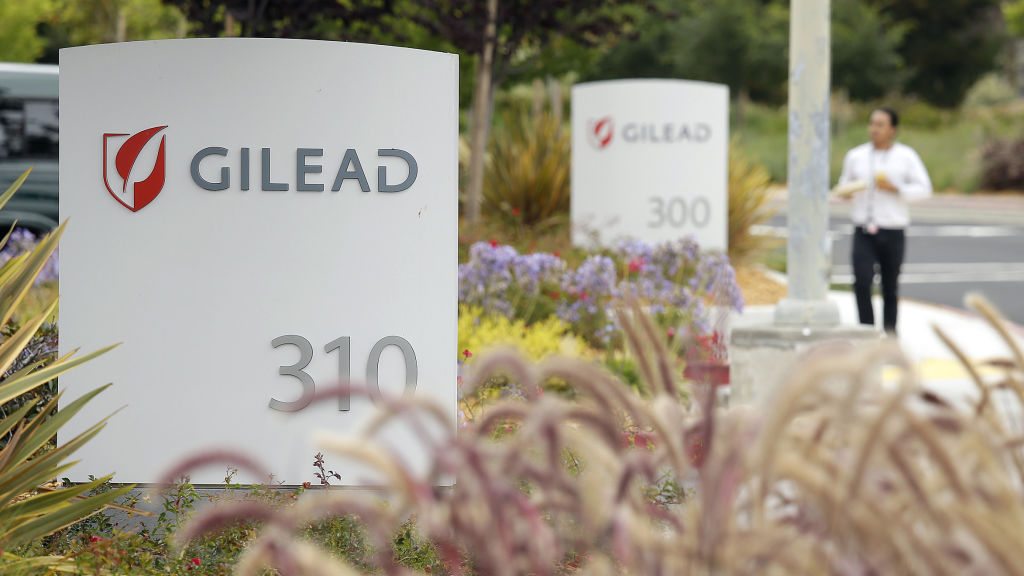Want to stay on top of the science and politics driving biotech today? Sign up to get our biotech newsletter in your inbox.
Hey there. Today, we see the first approval of a drug to treat MASH, a Gilead medication shows huge promise in Ebola, and more.
advertisement
The need-to-know this morning
- Bristol Myers Squibb won FDA approval to expand the use of its Breyanzi CAR-T treatment to include patients with chronic lymphocytic leukemia. Breyanzi, already approved for lymphoma, is the first personalized cell therapy to receive an additional regulatory clearance to treat this type of blood cancer.
Madrigal wins first approval for MASH drug
The FDA yesterday granted an accelerated approval for the first medicine to treat MASH. The pill, made by Madrigal Pharmaceuticals, is called Rezdiffra. MASH is a serious liver disease that is linked to obesity and causes inflammation and scarring. It can ultimately lead to cirrhosis and cancer, and many patients ultimately need liver transplants.
The drug’s final approval will be contingent on the results of an ongoing study that’s designed to show whether the drug improves long-term outcomes in patients. Rezdiffra, or resmetirom, was approved based on a Phase 3 study that showed the drug resolved MASH symptoms with no worsening of fibrosis in up to 30% of patients, compared to 10% on placebo. That said, the market for MASH has shrunk substantially, now that many patients with early signs of fatty liver disease are able to stave off progression by using GLP-1 drugs for weight loss.
advertisement
Sangamo faces a cash crunch
In the years before the advent of CRISPR, there was essentially one major gene editing company: Sangamo Therapeutics. Using an older, more cumbersome technology, it conducted some of the first attempts to ever rewrite patients’ genomes, laying the groundwork for today’s CRISPR treatments.
Now, though, Sangamo may be on its last leg. In an earnings report Wednesday, the company reported it had $81 million in cash on hand but was on pace to spend $145 million to $165 million this year — in other words, that it was on track to go bankrupt by summer.
There are, of course, plenty of ways for a biotech to extend its runway. Executives have slashed expenses, including an entire French division, and they believe they have promising technologies that larger companies will still be interested in, including a set of viruses for delivering genes into the brain. But that’s a competitive field and other partners have left. Sangamo will probably survive past August, but it may soon run out of cards to play.
What happens when an approved drug doesn’t work?
Why don’t patients want gene therapy? And is MASH still a big deal? We cover all that and more this week on “The Readout LOUD,” STAT’s biotech podcast.
Bioethicist Holly Fernandez Lynch joins us to discuss the case of Amylyx Pharmaceuticals’ treatment for ALS and what its failure means for drug development. We also discuss the latest news in the life sciences, including a tepid reception for gene therapies, the future of CAR-T cancer treatment, and the first approved medicine for a prevalent liver disease.
Gilead’s antiviral shows promise in Ebola
Obeldesivir, an antiviral made by Gilead, may help cure Ebola Sudan infections — a form of the disease that still has no approved vaccines or treatments. University of Texas researchers tested the drug in five primates 24 hours after they’d been given what was considered a lethal dose of the Sudan ebolavirus. All of them survived; two control animals given a placebo died.
The only existing Ebola treatments are monoclonal antibody drugs, which are costly to produce and need to be refrigerated, which makes them difficult to distribute and store. Obeldesivir, by contrast, is given in pill form, taken over the course of 10 days. It’s relatively inexpensive to manufacture, and can be stored at room temperature.
“I think you could really, really control these outbreaks quicker if you have something like this,” said Tom Geisbert, a microbiologist and senior author of the paper, which was published Thursday in Science. “I think it can definitely be a game-changer.”
FDA advisers recommend Geron’s drug for myelodysplastic syndromes
An FDA advisory committee voted 12-2 in favor of the Geron drug imetelstat to treat transfusion-dependent anemia in patients with a group of blood cancers called myelodysplastic syndromes. There have been safety concerns with the treatment, Reuters writes, but advisers believed the benefits outweigh the risks. Regulators are expected to make a decision about the drug by June 16. If imetelstat is approved, it will compete with Bristol Myers Squibb’s Reblozyl, which won a label expansion from the FDA last year for the same indication.
“Transfusion independence has been the regulatory gold standard for approvals in this patient setting,” a company spokesperson said at the panel. “The FDA approvals have been granted even in the recent few years in the absence of other benefits.”

